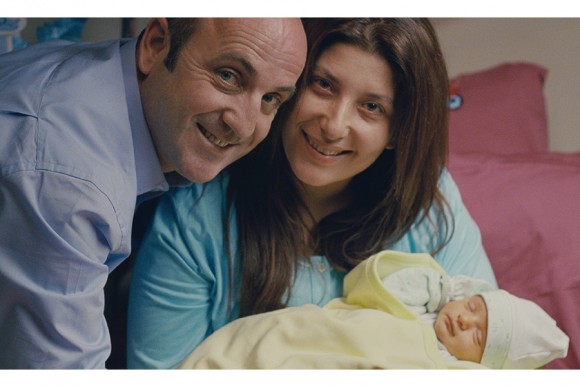Four years in development, it has picked up prizes at some of Europe’s most prominent film festivals, including the award for Best Film at Sarajevo IFF and the France 4 Visionary Award at Semaine de la Critique in Cannes.
Last week, Mertoğlu (born 1988) attended the 32nd Warsaw Film Festival as a member of its International Competition jury, with his own film screening in the Discovery sidebar. The young filmmaker talked to us about the story behind the film, the social issues prevailing in Turkish society, and his collaboration with Romanian cinematographer Marius Panduru.
FD: Tell us about the social background of the story.
MCM: Adoption is still a taboo in Tukey, despite the work of social departments, who usually warn people to tell the truth to their children, but nobody cares. All social classes do this. In Turkey, if you’re married, you’re expected to have a baby. If not, everyone describes you as half a man or half a woman. In my film, you never see the person who is at fault for it, I’m not interested in that. Maybe it’s a medical problem.
You use a lot of humour and surrealistic images in your film, in spite of its serious topic.
It’s my way of looking at things. There are a lot of melodramas on this subject, a lot of people crying. But I don’t like such films. I like films that use absurd situations. Because if it’s only about social problems, it can become boring at some point. We all know that it’s tragic, of course, but if the film includes some source of comedy, I enjoy it much more as a spectator. But some of the things in the film, such as the flock of ducks that is in front of one of the adoption centres, is all real. They are part of life.
Is Turkey itself inherently absurd?
Of course. It’s our daily life. I didn’t work a lot on extra details for the absurd moments. But there are some scenes which are intentionally so, like the scene where everyone is at the office and is sleeping with their heads on their desks. It’s a self-reflexive thing for me, I always lay my head on the table when I wait for a signature because it’s so boring.
How did you decide to collaborate with your cinematographer, Marius Panduru?
I really like Romanian films. Marius was the first person involved in the film, because I really admire Corneliu Porumboiu, Cristi Puiu and Radu Jude’s films especially. I sent him the script and he accepted immediately. Initially, we got in touch with Anca Puiu as a co-producer, but she was really busy with Sieranevada at the time, so she suggested we go with Parada Film, Catalin Peter Netzer’s company. It went well, it’s really rare to get a Romanian co-production, because they support very few foreign films each year. But it was still easier to go through the paperwork than in Turkey, believe me.
What was the hardest scene to film in the movie?
The hardest part was to work with the children. The very first scene in the prologue, with the mating bull, was also very hard to organise. They are really big and dangerous animals. It was a very long scene too, with separate mise-en-scènes. And about the cow giving birth. There are four to five births every day in such industrial spaces. We were really lucky because sometimes it takes hours for it to unfold, and we had limited film stock, so we couldn’t really do it again and again.
How are people in Turkey reacting to the film?
Some really like it, some don’t. Until now, at the festivals, the reaction is much better than what I expected. Some criticise it for being too absurd, or that it doesn’t reflect all the people in Tukey, but they are unfamiliar with these types of films. TV series are very popular here, they expect the shot counter-shot technique. Not just me, everyone who does such films faces such criticisms. It will be released in November, so I don’t yet know how larger audiences will react.




















